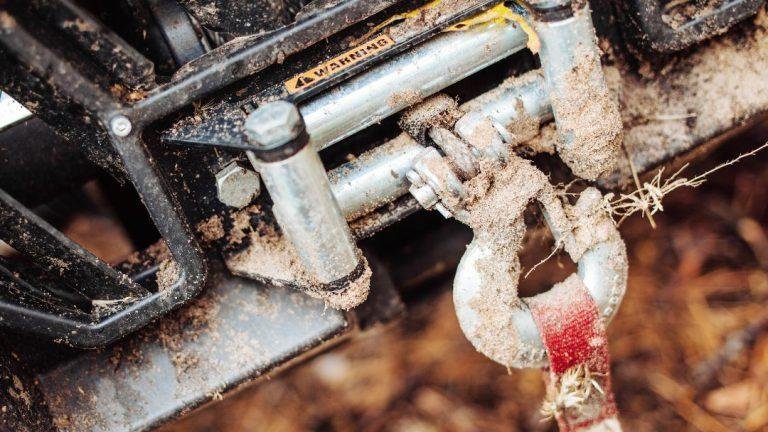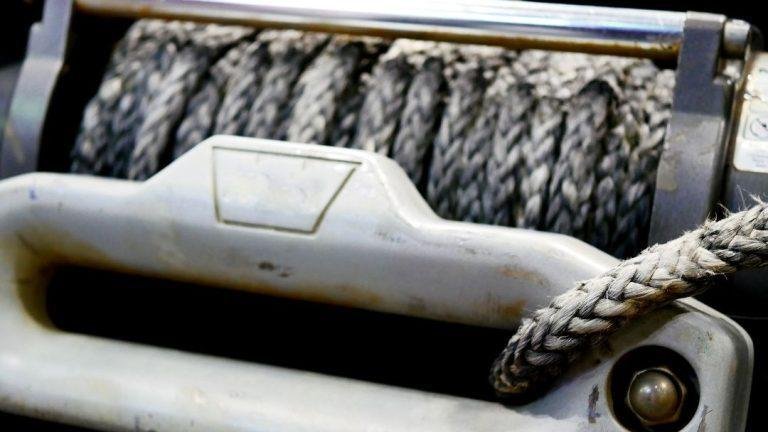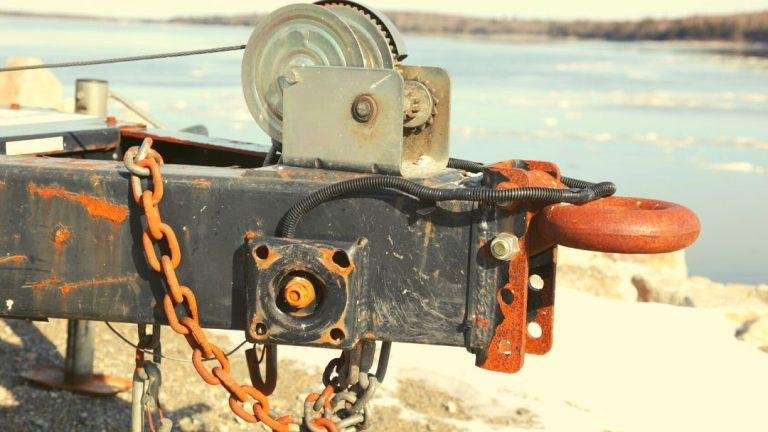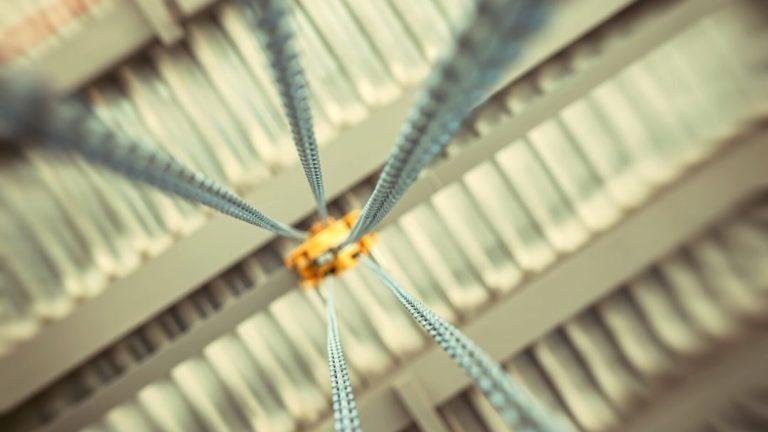An atv winch cable offers strength and durability, while a synthetic rope provides lightweight and safer handling, making it a matter of personal preference. When deciding between an atv winch cable and synthetic rope, consider the specific needs and preferences of the user.
An atv winch cable is a traditional option that offers strength and durability for heavy-duty use. Made of steel, it can withstand rugged terrains and rough pulling conditions. With a higher breaking strength and resistance to abrasion, it is ideal for heavy loads and extreme off-roading.
However, it is heavier and harder to handle compared to synthetic rope. On the other hand, synthetic rope offers several advantages. It is lightweight, making it easier to handle and less cumbersome. Additionally, it does not store energy like a winch cable, which reduces the risk of injury if it were to break or snap. Synthetic rope is also more resistant to uv rays and rust, resulting in a longer lifespan. However, it is less durable than an atv winch cable and may require more frequent replacement. The choice between an atv winch cable and synthetic rope depends on the user’s specific needs and preferences. Consider factors such as load capacity, weight, safety, and durability when making a decision.
Understanding The Role Of Winch Cables And Synthetic Ropes In Off-Roading
Understanding the role of winch cables and synthetic ropes in off-roading is crucial for atv enthusiasts. Both options have their advantages, with winch cables providing durability and strength, while synthetic ropes offer lightweight and easier handling on the trails.
Off-roading is an adventurous and thrilling activity that requires proper preparation and equipment. When it comes to tackling tough terrains and getting out of sticky situations, a winch is an invaluable tool for off-roaders. But what makes a winch truly effective?
The answer lies in understanding the role of winch cables and synthetic ropes in off-roading. We will explore the advantages and factors to consider when choosing between winch cables and synthetic ropes to help you make an informed decision.
How Winch Cables And Synthetic Ropes Help In Off-Roading
Winch cables and synthetic ropes are essential components of a winch setup that aid in off-roading by providing a means of recovery when a vehicle gets stuck. Both options have their own advantages, and understanding these factors can help you determine which one is best suited for your needs.
Here are some key points about winch cables:
- Winch cables are typically made of strong and durable steel, making them resistant to wear and tear in challenging off-road conditions.
- They are capable of handling heavy loads and can withstand the immense forces generated during recovery operations.
- Winch cables provide excellent heat resistance, ensuring that they remain reliable even in high-temperature situations.
- However, winch cables tend to be heavier than synthetic ropes, which can affect the overall weight of your winch setup.
- They are also prone to kinking, which can impact their performance and durability over time.
Now let’s consider the advantages of synthetic ropes:
- Synthetic ropes are lighter in weight compared to winch cables, making them easier to handle and transport. This can be particularly beneficial for off-roaders who prioritize weight savings.
- They are also highly flexible, which allows for easier maneuverability during winching operations.
- Synthetic ropes are less likely to cause injury if they break under tension, as they lack the recoil and whip characteristics of winch cables.
- They are resistant to kinking and easier to spool, reducing the risk of damage and prolonging their lifespan.
- However, synthetic ropes are more susceptible to abrasion and uv degradation, requiring regular inspection and maintenance.
Factors To Consider When Choosing Between Winch Cables And Synthetic Ropes
When deciding between winch cables and synthetic ropes, it is essential to consider the following factors:
- Load capacity: Determine the weight of your vehicle and ensure that the chosen winch cable or synthetic rope can handle the maximum load.
- Strength and durability: Consider the strength and durability requirements based on the terrain you will be traversing and the recovery operations you anticipate.
- Weight: Assess the weight of the winch cable or synthetic rope, taking into account how it affects the overall weight of your off-road vehicle.
- Handling and safety: Evaluate the ease of handling and the potential safety risks associated with each option, such as kinking, recoil, or the potential for injury.
- Maintenance: Consider the regular maintenance and inspection requirements for each option, including factors like uv degradation, abrasion, and corrosion resistance.
Understanding the role of winch cables and synthetic ropes in off-roading is crucial for making an informed choice. By considering factors like load capacity, strength, weight, handling, and maintenance, you can select the option that best suits your off-roading needs.
So, whether you opt for the durability of winch cables or the lightweight flexibility of synthetic ropes, you can embark on your off-road adventures with confidence, knowing that you have the right equipment for the job.
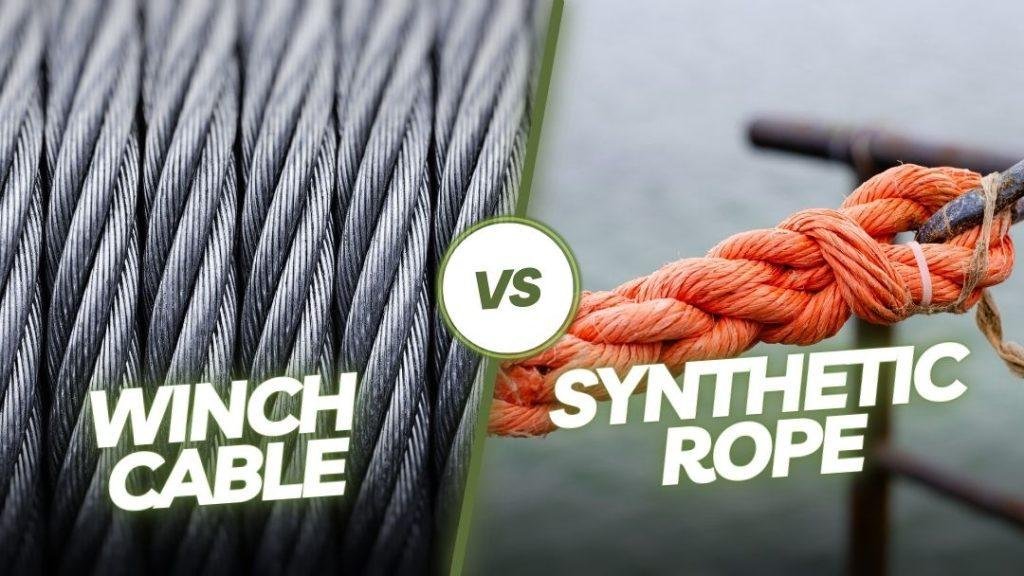
Highlighting The Benefits Of Using Winch Cables
Discover the advantages of using winch cables for your atv. Compare the benefits of traditional steel cables to synthetic rope, including strength, durability, and ease of use. Experience optimal performance and peace of mind on your off-road adventures.
Strength And Durability Of Winch Cables:
- Winch cables are known for their exceptional strength and durability, making them a reliable choice for off-roading enthusiasts. These cables are constructed using high-quality steel, ensuring they can handle heavy loads and withstand tough conditions.
- The steel composition of winch cables grants them incredible tensile strength, allowing them to withstand extreme pulling forces without fraying or breaking.
- The robustness of winch cables makes them ideal for tackling demanding off-road terrains where obstacles and stuck vehicles are common.
- These cables are designed to be abrasion-resistant, minimizing the risk of damage during use and ensuring they maintain their integrity over time.
- Winch cables are also highly resistant to uv rays, reducing the likelihood of degradation when exposed to sunlight for extended periods.
Suitable Applications For Winch Cables In Off-Roading:
- Recovery operations: Winch cables are particularly well-suited for various recovery applications in off-roading. Whether you need to pull out a stuck vehicle or navigate challenging obstacles, winch cables provide the necessary strength and reliability to get the job done.
- Heavy-duty hauling: If you frequently engage in heavy-duty hauling during your off-roading adventures, winch cables can withstand the immense pressure and ensure a secure and efficient towing experience.
- Emergency situations: In emergency situations such as vehicle roll-overs, winch cables offer the necessary strength to assist in uprighting the vehicle and providing stability during the recovery process.
- Versatility: Winch cables offer versatility in terms of their compatibility with different winch systems. They can be easily attached to most winch drums, offering flexibility to off-roaders with diverse equipment.
- Cost-effectiveness: Compared to synthetic ropes, winch cables are often more cost-effective, making them an excellent choice for off-roaders on a budget without compromising on performance.
By opting for winch cables, off-roaders benefit from their exceptional strength, durability, and suitability for a range of off-road applications. Whether it’s recovering stuck vehicles, heavy-duty hauling, or emergency situations, winch cables deliver the reliability and robustness needed for a successful off-roading experience.
Discussing The Limitations Of Winch Cables
Find out the limitations of winch cables in comparison to synthetic ropes in atv usage. Understand the pros and cons of each option to make an informed decision about which one suits your requirements better.
If you’re an atv enthusiast who relies on a winch for off-road adventures, it’s crucial to understand the limitations that come with using winch cables. While winch cables are durable and have been used for decades, they do have their drawbacks.
In this section, we’ll explore potential safety risks associated with winch cables, as well as performance issues that arise in certain conditions.
Potential Safety Risks Associated With Winch Cables:
- Brittle and prone to fraying: Winch cables made from steel can become brittle over time and may start to fray. This can compromise the overall strength and integrity of the cable, putting both you and your vehicle at risk.
- Heavy and cumbersome: Steel cables are typically heavier than their synthetic rope counterparts. Maneuvering a heavy cable can be challenging, especially in emergency situations when speed is essential.
- Risk of recoil accidents: When under tension, winch cables hold a significant amount of potential energy. If the cable were to snap or break suddenly, it can result in dangerous recoil accidents. This sudden release of energy can cause severe injuries or damage to nearby objects.
- Susceptible to rust and corrosion: Steel cables are susceptible to rust and corrosion, particularly if they come into contact with moisture or are exposed to harsh outdoor conditions. This can weaken the cable over time, potentially leading to unexpected failures.
Performance Issues In Certain Conditions:
- Limited flexibility: Winch cables have limited flexibility compared to their synthetic rope counterparts. This lack of flexibility can make them more challenging to maneuver in tight spots or when dealing with intricate recoveries.
- Prone to kinking: Steel cables have a tendency to kink, especially if wound unevenly during spooling. Kinking can weaken the cable and potentially cause it to snap under heavy loads.
- Poor performance in extreme cold: In extremely cold temperatures, winch cables can become stiff and more prone to breakage. If you often find yourself tackling off-road adventures in freezing conditions, synthetic rope may be a more suitable option.
- Noisy operation: Steel cables can produce loud and sharp noises when under tension. This can be particularly distracting in quiet environments or when trying to communicate effectively during a recovery operation.
Understanding the limitations of winch cables is essential for making an informed decision when choosing the right equipment for your atv winch. While they may be the traditional choice, it’s worth considering the alternative options available, such as synthetic rope, which can offer improved safety and performance in certain situations.
Exploring The Advantages Of Synthetic Ropes
Discover the benefits of synthetic ropes over atv winch cables for off-roading adventures. With increased strength, lightweight design, and resistance to abrasions, synthetic ropes provide a reliable choice for tough terrains. Ditch the old, bulky cables and upgrade your winch with synthetic ropes for enhanced performance.
Lightweight And Easy To Handle:
- Synthetic ropes are incredibly light compared to traditional atv winch cables. This lightweight nature makes them easy to handle and carry, especially during off-roading adventures.
- The reduced weight of synthetic ropes also means less strain on your atv’s winch motor, resulting in better overall performance.
- Synthetic ropes are typically made from high-strength, low-stretch materials such as dyneema or spectra, which contribute to their lightweight nature.
Increased Safety Features And Reduced Risk Of Injury:
- One of the major advantages of synthetic ropes over atv winch cables is their increased safety features.
- Synthetic ropes have a much lower snap-back potential compared to steel cables, minimizing the risk of injury in case of a failure or breakage.
- Unlike steel cables, synthetic ropes do not store kinetic energy, ensuring a controlled and safer winching experience.
- In the event that a synthetic rope does break, it typically falls to the ground rather than recoiling back towards the atv. This further reduces the risk of injury to both the operator and bystanders.
Remember, synthetic ropes are not only lightweight and easy to handle, but they also offer increased safety features and a reduced risk of injury compared to traditional atv winch cables. These advantages make synthetic ropes a popular choice among off-roading enthusiasts who prioritize safety without compromising performance.
Analyzing The Drawbacks Of Synthetic Ropes
Comparing the drawbacks of synthetic ropes, it’s clear that atv winch cables offer greater durability and resistance to abrasion. Synthetic ropes are prone to fraying and require frequent inspection for signs of wear and tear. Ultimately, the choice between the two depends on individual preferences and specific application needs.
Durability is a crucial factor to consider when it comes to atv winch cables. While synthetic ropes have gained popularity in recent years, they do come with their fair share of drawbacks. In this section, we will delve into the limitations of synthetic ropes to help you make an informed decision for your atv winch.
Limited Durability And Potential For Damage
Synthetic ropes may offer advantages in terms of weight and flexibility, but they typically lack the durability of traditional steel cables. Here are some key drawbacks to consider:
- Susceptible to abrasion: Synthetic ropes are more prone to wear and tear, especially when subjected to rough terrain or sharp edges. This can lead to fraying or weakening of the rope over time.
- Vulnerable to uv damage: Continuous exposure to sunlight and uv rays can cause synthetic ropes to degrade and lose their strength. Regular maintenance checks and uv protectants are necessary to prevent this issue.
- Affected by heat and temperature changes: Synthetic ropes can become weakened or brittle when exposed to extreme temperatures. This can compromise their ability to withstand heavy loads or sudden jerks during winching operations.
Compatibility Issues With Certain Winch Types
Not all atv winches are compatible with synthetic ropes due to their unique characteristics. It’s important to be aware of potential compatibility issues before making a purchase decision. Here are some factors to consider:
- Winch drum size: Synthetic ropes have a larger diameter compared to steel cables, which can significantly impact their compatibility with winch drums. Ensure that your winch drum is designed to accommodate synthetic ropes.
- Heat build-up: Synthetic ropes generate more heat during winching operations compared to steel cables. Some winch models are not built to withstand the increased heat, which can lead to premature wear or damage to the winch itself.
Making An Informed Decision
While synthetic ropes offer advantages such as lightweight and greater flexibility, their limited durability and compatibility issues should not be overlooked. It’s crucial to weigh the pros and cons based on your specific atv winching needs and usage patterns.
Remember, regular maintenance, proper care, and following manufacturer guidelines are vital to maximize the lifespan and performance of synthetic ropes. Evaluate these drawbacks alongside the benefits to make the best choice for your atv winch setup.
Understanding Your Off-Roading Needs And Requirements
Understanding your off-roading needs and requirements is essential when choosing between an atv winch cable and a synthetic rope for your vehicle. Both options have their advantages and it’s important to consider factors such as durability, strength, and weight capacity to make an informed decision.
Off-roading can be an exhilarating and adventurous activity, pushing your vehicle to its limits in challenging terrains and conditions. Whether you’re a newbie or an experienced off-roader, it’s crucial to understand your specific needs and requirements before choosing between an atv winch cable and synthetic rope.
Consider the following factors to make an informed decision:
The Weight And Size Of Your Vehicle:
- Heavy-duty vehicles with larger weights and sizes may benefit from the strength and durability of an atv winch cable.
- Atv winch cables are typically made of steel, providing excellent tensile strength and the ability to handle heavier loads.
- However, keep in mind that steel cables are prone to rusting and can become kinked or frayed, requiring regular maintenance and inspections.
The Type Of Terrain And Conditions You Frequently Encounter:
- If you often find yourself traversing challenging terrains, such as rocks, tree stumps, or sharp edges, synthetic rope may be a more suitable choice.
- Synthetic ropes are lightweight, flexible, and easier to handle compared to steel cables. They are less likely to cause damage to your vehicle or surroundings in case of a breakage.
- Additionally, synthetic rope does not conduct electricity, which is beneficial when dealing with electrical hazards that may be present in off-road conditions.
Other Considerations:
- Accessibility to the winching point: Synthetic ropes are generally easier to handle due to their lightness and flexibility, making it convenient to attach and detach from the winching point.
- Personal preference: Some off-roaders may prefer the traditional feel and look of an atv winch cable, valuing its robustness and reliability even with its maintenance requirements.
Keep in mind that both options have their pros and cons, so it’s crucial to weigh your personal preferences, vehicle specifications, and off-roading requirements before making a decision. Ultimately, choosing between an atv winch cable and synthetic rope depends on what suits your needs and offers the best performance for your off-road adventures.
Evaluating The Cost And Maintenance Of Winch Cables And Synthetic Ropes
Evaluating the cost and maintenance of winch cables and synthetic ropes, this article delves into the comparison between atv winch cable and synthetic rope. Highlighting their pros and cons, it helps readers make an informed decision on which option suits their needs better.
Atv Winch Cable Vs Synthetic Rope
When it comes to choosing between an atv winch cable and a synthetic rope, there are several factors to consider. One of the most influential aspects is the cost and maintenance involved. Let’s break it down and delve into the financial and upkeep implications of both options.
Initial Investment And Long-Term Expenses:
- Winch cables:
- Typically, winch cables are the more budget-friendly option when it comes to initial investment.
- They are made of high-quality steel, which makes them durable and capable of handling heavy loads.
- However, over time, winch cables may experience wear and tear, leading to potential fraying or even snapping.
- In such cases, replacement cables can incur additional costs, making them a more costly long-term option.
- Synthetic ropes:
- Synthetic ropes are initially pricier than winch cables but tend to provide better value in the long run.
- These ropes are constructed from lightweight, durable materials such as dyneema or spectra fiber, offering both strength and flexibility.
- Synthetic ropes have a significantly higher breaking strength compared to their steel counterparts.
- They are also more resistant to corrosion and uv damage, ensuring a longer lifespan.
- Although synthetic ropes may require occasional maintenance, they generally require fewer replacements, resulting in lower long-term expenses.
Maintenance Procedures And Lifespan:
- Winch cables:
- Maintenance for winch cables primarily involves inspecting the cable for signs of wear, rust, or fraying.
- Regular lubrication is essential to minimize rust and ensure smooth operation.
- If any issues are detected, it is vital to promptly address them to prevent accidents or damage to the winch system.
- The lifespan of winch cables can vary based on usage frequency, load capacity, and maintenance.
- However, with proper care, winch cables can last for several years.
- Synthetic ropes:
- Maintaining synthetic ropes is relatively straightforward, making them a popular choice for atv enthusiasts.
- Regularly cleaning the rope with mild soap and water helps eliminate debris or contaminants that may compromise its integrity.
- Uv protection sprays can be applied to further extend the rope’s lifespan.
- As synthetic ropes do not rust or corrode, the risk of damage due to exposure to the elements is significantly reduced.
- Additionally, synthetic ropes are less likely to kink or develop sharp burrs that could cause injury or damage to the winch.
- With proper care, synthetic ropes can last for many years, making them a cost-effective and low-maintenance choice.
While winch cables may require a lower initial investment, their long-term costs and maintenance requirements can outweigh the benefits. Synthetic ropes, on the other hand, offer better value in terms of durability, longevity, and lower maintenance expenses. Consider your specific needs and budget to make an informed decision that will enhance your atv winching experience.
Cleaning And Inspecting Winch Cables
Cleaning and inspecting winch cables is essential for maintaining the durability and reliability of any atv winch. When choosing between an atv winch cable and synthetic rope, consider factors such as strength, weight, and ease of maintenance to determine the best option for your needs.
Keeping your atv winch cable clean and well-maintained is crucial for optimal performance and longevity. Regularly cleaning and inspecting your winch cable ensures that it remains free from dirt, debris, and corrosion, and helps you identify signs of wear and tear.
Here’s a step-by-step guide on how to clean and inspect your atv winch cable:
Removing Dirt, Debris, And Corrosion:
- Start by disconnecting the winch cable from the atv.
- Inspect the cable for any visible dirt, mud, or debris buildup.
- Use a soft brush or cloth to gently scrub away the dirt and debris from the cable surface.
- Make sure to pay extra attention to the cable’s strands and joints, where debris can accumulate.
- If corrosion is present, consider using a rust remover or penetrating oil to dissolve it.
- After cleaning the cable, rinse it thoroughly with water to remove any remaining residue.
- Dry the cable completely before reinstallation.
Identifying Signs Of Wear And Tear:
- Carefully examine the entire length of the winch cable for any signs of fraying, kinks, or damage.
- Check the cable ends for any loose or broken strands.
- Inspect the cable hook for wear or deformation, ensuring it is securely attached.
- Look for any discoloration or rust on the cable, as these can indicate corrosion or weakening.
- Pay attention to any abnormal sounds or vibrations during winching operations, which could indicate potential issues.
- If you notice any significant damage or wear, it is recommended to replace the winch cable to ensure safe and reliable operation.
Remember, regular cleaning and inspection of your atv winch cable not only improves its performance but also enhances safety during winching operations. By following these simple steps, you can keep your winch cable in top condition and enjoy worry-free adventures on your atv.
Cleaning And Inspecting Synthetic Ropes
Synthetic ropes used for atv winch cables require regular cleaning and inspection to ensure their longevity and reliability. Proper maintenance helps prevent dirt buildup and damage, ensuring safe and effective use during off-road adventures.
Maintaining a clean and properly functioning synthetic rope is essential for ensuring the longevity and reliability of your atv winch. Regular cleaning and inspection will not only help extend the lifespan of the rope but also keep you safe during your off-road adventures.
In this section, we will discuss the importance of cleaning and inspecting synthetic ropes, covering key areas such as removing dirt, mud, and other contaminants, as well as checking for fraying and signs of damage.
Removing Dirt, Mud, And Other Contaminants:
- Use a mild detergent or synthetic rope cleaner specifically designed for cleaning atv winch ropes.
- Start by rinsing the rope with a low-pressure hose to remove loose dirt and debris.
- Apply the cleaner to the rope and scrub it gently with a soft-bristled brush to remove stubborn stains and grime.
- Rinse the rope thoroughly with clean water to remove any remaining detergent or cleaner residue.
- Hang the synthetic rope to air dry in a well-ventilated area before storing it properly.
Checking For Fraying And Signs Of Damage:
- Inspect the entire length of the synthetic rope for any signs of fraying, cuts, or abrasions.
- Pay close attention to the rope’s end loops and connection points, as these areas often experience the most stress.
- Gently run your fingers along the rope to feel for any irregularities or abnormalities.
- If you notice any fraying or damage, consider replacing the rope to avoid potential failure during winching operations.
- Regularly check the rope’s strength and integrity by performing a load test to ensure it can handle the required weight.
Remember, the cleanliness and condition of your synthetic rope play a crucial role in its performance and safety. By regularly cleaning and inspecting your atv winch rope, you can enjoy worry-free off-roading adventures and maximize the lifespan of your equipment.
Making An Informed Decision For Optimal Off-Roading Performance
Make an informed decision for superior off-roading performance with atv winch cable versus synthetic rope. Choose wisely for optimal power and durability during your off-road adventures.
Considerations When Choosing Between Winch Cables And Synthetic Ropes:
When it comes to off-roading and maximizing your vehicle’s performance, choosing the right winch cable or synthetic rope is crucial. Here are some key considerations to keep in mind before making a decision:
- Strength and durability: Winch cables are known for their exceptional strength, making them ideal for heavier vehicles and tough recovery tasks. On the other hand, synthetic ropes offer impressive strength-to-weight ratios, making them a preferred choice for lighter vehicles.
- Safety: Synthetic ropes are relatively safer than winch cables in case of failure or breakage. Unlike winch cables that can snap and recoil, synthetic ropes are designed to simply drop to the ground when they fail, minimizing the risks of injury.
- Weight and flexibility: Synthetic ropes are significantly lighter than winch cables, making them easier to handle and transport. Additionally, synthetic ropes are more flexible, allowing for smoother and safer winching operations.
- Resistance to weather and corrosion: Synthetic ropes have excellent resistance to weather elements, including uv rays, moisture, and temperature fluctuations. Winch cables, on the other hand, are more susceptible to corrosion and can be affected by rust over time.
- Ease of maintenance: Synthetic ropes are low maintenance and do not require lubrication like winch cables. They are also less prone to kinking and binding, ensuring hassle-free operation for longer periods.
- Cost: Winch cables are generally more budget-friendly upfront, while synthetic ropes tend to be costlier. However, considering their longevity, safety, and ease of maintenance, synthetic ropes may offer better long-term value for money.
Importance Of Regular Maintenance And Care For Longevity:
To ensure the longevity of your winch cable or synthetic rope, regular maintenance and care are essential. Here are some key points to remember:
- Inspect for damage: Regularly inspect your winch cable or synthetic rope for signs of wear, abrasion, or fraying. Replace any damaged sections promptly to avoid unexpected failures.
- Clean after use: After each off-roading adventure, clean your winch cable or synthetic rope to remove dirt, mud, and debris. This helps prevent buildup and prolongs its lifespan.
- Avoid overloading: Be mindful of the recommended weight limits for your winch cable or synthetic rope. Overloading can significantly decrease their lifespan, so always stay within the specified limits.
- Proper storage: Store your winch cable or synthetic rope in a dry and well-ventilated area when not in use. Avoid exposing them to extreme temperatures or direct sunlight, as this can degrade their performance over time.
- Lubricate winch cables: If you opt for winch cables, regular lubrication is necessary to prevent rust and ensure smooth operation. Use a corrosion-resistant lubricant specifically designed for winch cables.
- Follow manufacturer’s guidelines: Always refer to the manufacturer’s instructions for specific maintenance and care recommendations. Each winch cable or synthetic rope may have unique requirements.
By making an informed decision based on your vehicle’s requirements and considering regular maintenance and care, you can achieve optimal off-roading performance while prolonging the lifespan of your winch cable or synthetic rope. Remember to prioritize safety and conduct thorough research before making a purchase.
Frequently Asked Questions Of Atv Winch Cable Vs Synthetic Rope
Is Wire Or Synthetic Rope Better For Winch?
Wire rope and synthetic rope each have their own advantages for winches. Wire rope is known for its durability and high tensile strength, making it ideal for heavy-duty applications. It can handle extreme loads and is resistant to abrasion and wear.
On the other hand, synthetic rope is lighter, easier to handle, and safer in case of breakage. It does not recoil like wire rope and is less likely to cause injury. Synthetic rope also floats in water, making it beneficial for water-related activities.
However, it is less durable and may require more frequent replacement. Ultimately, the choice between wire rope and synthetic rope depends on the specific needs and preferences of the user. Consider factors such as the weight of the load, the conditions of use, and any safety concerns before making a decision.
Which Is Better Synthetic Rope Or Wire Rope?
Synthetic rope is better than wire rope for various reasons. Firstly, synthetic rope is lighter, making it easier to handle and transport. Secondly, it has a higher strength-to-weight ratio, providing exceptional strength despite its lighter weight. Thirdly, synthetic rope is more flexible, allowing for easier maneuverability and reducing the risk of injury during handling.
Additionally, synthetic rope does not rust, corrode or splinter like wire rope, making it safer to use and requiring less maintenance. Moreover, synthetic rope is also resistant to chemicals, uv rays, and extreme temperatures, ensuring its durability in various environments.
Furthermore, synthetic rope does not conduct electricity, reducing the risk of accidents in situations where electrical currents are present. In conclusion, synthetic rope outperforms wire rope in terms of weight, strength, flexibility, safety, durability, and resistance to environmental factors.
What Are The Disadvantages Of Synthetic Winch Rope?
Synthetic winch rope has some disadvantages. It is prone to heat damage, which reduces its strength and can lead to breakage. Over time, the constant friction between the rope and the winch drum can cause wear and tear, reducing its lifespan.
Additionally, synthetic rope is more susceptible to uv damage compared to steel wire rope. Exposure to sunlight can cause degradation, making it less reliable. Another drawback is that synthetic rope is sensitive to sharp edges and abrasive surfaces, which can cause abrasion and damage.
Furthermore, synthetic rope is more expensive than steel wire rope. It requires regular inspection and maintenance to ensure its integrity and performance. Despite these downsides, synthetic winch rope remains a popular choice due to its lighter weight, ease of handling, and reduced risk of injury during use.
Can I Replace Steel Winch Cable With Synthetic?
Yes, it is possible to replace a steel winch cable with synthetic. Synthetic winch lines are becoming increasingly popular due to their lightweight and strong properties. They offer several advantages over steel cables, such as being easier to handle, safer in case of breakage, and less prone to kinking and rusting.
Synthetic winch lines are usually made from high-strength materials like dyneema or synthetic fibers, making them durable and reliable. However, it is crucial to ensure that the synthetic winch line is compatible with your winch’s specifications and capacity. Additionally, proper installation and regular inspection are necessary to maintain optimal performance and safety.
It is recommended to consult your winch manufacturer’s guidelines and consider any specific requirements before replacing your steel winch cable with a synthetic one.
Conclusion
When deciding between an atv winch cable and synthetic rope, it is crucial to consider the specific needs and preferences of your off-road adventures. While winch cables are strong and reliable, they require regular maintenance to prevent rust and fraying.
On the other hand, synthetic ropes offer superior strength-to-weight ratio, are easier to handle, and do not pose the same safety concerns if they were to snap. However, they are more prone to uv degradation and can be damaged by sharp edges if not adequately protected.
Ultimately, the choice between an atv winch cable and synthetic rope boils down to personal preference and budget. Both options have their pros and cons, so be sure to weigh them carefully to make an informed decision that suits your off-road demands.
So, keep these factors in mind and choose wisely for a worry-free and efficient atv winching experience



